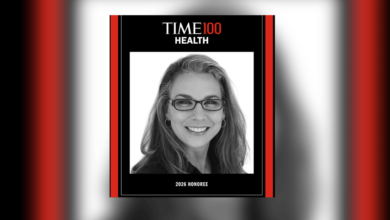Poor mental health in children ‘spiralling out of control’

The government has been urged to invest in health visiting services, as nurse leaders warn that mental health problems among babies, children and young people (BCYP) are “spiralling out of control”.
This week, the government published a series of documents, to review work already underway in local areas to better support BCYP mental health and also identify any gaps in provision.
“Who will recognise babies in distress if we don’t’ rebuild our health visiting services in England?”
Alison Morton
It comes as recent data from NHS England revealed that, as of November 2023, 739,751 children and young people were accessing mental health services – a 6% increase compared to the year before.
In its new publications, the government identified health visiting and school nursing services as being integral to improving the mental health of BCYP.
One document explained the important role that these professionals can play in preventing “the onset, escalation and negative impact of mental health problems”.
It said: “Specialist midwives, health visitors and school nurses have a crucial role alongside other professionals operating across multidisciplinary pathways delivering effective mental health care for mothers, fathers, infants, children and young people.”
The publications noted that a range of characteristics were associated with disproportionately poorer mental health outcomes, including being from a marginalised background, having a parent with mental health problems, having a special educational need or experiencing some form of displacement.
The government said it was important for policy and practice “to be designed in a way that seeks to level-up inequalities in outcomes” between different groups.
“Those designing programmes and interventions aimed at improving the mental health of BCYP may want to consider how actions can be targeted at population groups most at risk,” it added.
The government identified a range of approaches that were already being implemented to promote good mental health and prevent poor outcomes across the BCYP life course.
One of the schemes spotlighted was the Healthy Child Programme, first launched in 2009, which promised families public health nursing support throughout a child’s life, focusing on prevention and early intervention.
It set out a vision for health visiting and school nursing services to support maternal and family mental health for 0-5-year-olds and to promote resilience and wellbeing among 5-19-year-olds.
As part of this, nurses would carry out a vast range of public health interventions, including screening, immunisation, health and development reviews, health improvement, sexual and reproductive health, wellbeing and parenting.
The Institute of Health Visiting (iHV) welcomed the government documents and the spotlight they placed on the important role of health visitors in supporting the mental health of BCYP.
Alison Morton, chief executive of the iHV, told Nursing Times: “The mental health of our babies, children and young people is too important to be treated as a ‘political football’.
“Rates of mental illness in this generation are spiralling out of control, services are unable to meet the scale of need and the cumulative lifetime ‘human’ and financial costs cannot be ignored any longer.
“We therefore welcome the Department of Health and Social Care’s suite of resources on improving the mental health of babies, children and young people.”
Ms Morton noted that the publications focused on the need to deliver interventions for children who are known to be in higher risk groups.
While older children might be able to have needs identified by their school, Ms Morton explained that it would be down to health visitors to identify those needs in babies and young children.

Alison Morton
She asked: “Who will recognise babies in distress if we don’t rebuild our health visiting services in England?”
The publication of the documents on BCYP mental health come in the same week that the government announced that it had rolled out ‘family hubs’ across 75 local authorities in England.
The hubs are supposed to act as a “one-stop-shop” where parents can access a variety of BCYP services, including help with language and communication development, mental health support for parents and carers, and programmes for improving children’s home development.
However, Ms Morton argued that family hubs “only provide part of the answer” to improving outcomes for children and noted the need for greater investment in health visiting services.
Latest data from NHS and independent providers in England has shown that there had been a 40% decline in the number of health visitors in England since 2015.
The NHS Long Term Workforce Plan set out an ambition to expand health visitor training places by 74% to more than 1,300 annually by 2031-32.
Meanwhile, in a new child health action plan published this week, Labour also pledged to increase the number of health visitors.
Ms Morton said: “It is time to maximise the role of health visitors to ensure that all families get the support that they need.
“If we get the early years right, we can avoid so much harm later in life.
“We urgently need 5,000 more health visitors in England.
“The costs are small compared to the spiralling costs of NHS treatment, lost ‘human’ potential and its cumulative costs across the life course – it’s all a matter of priorities.”







